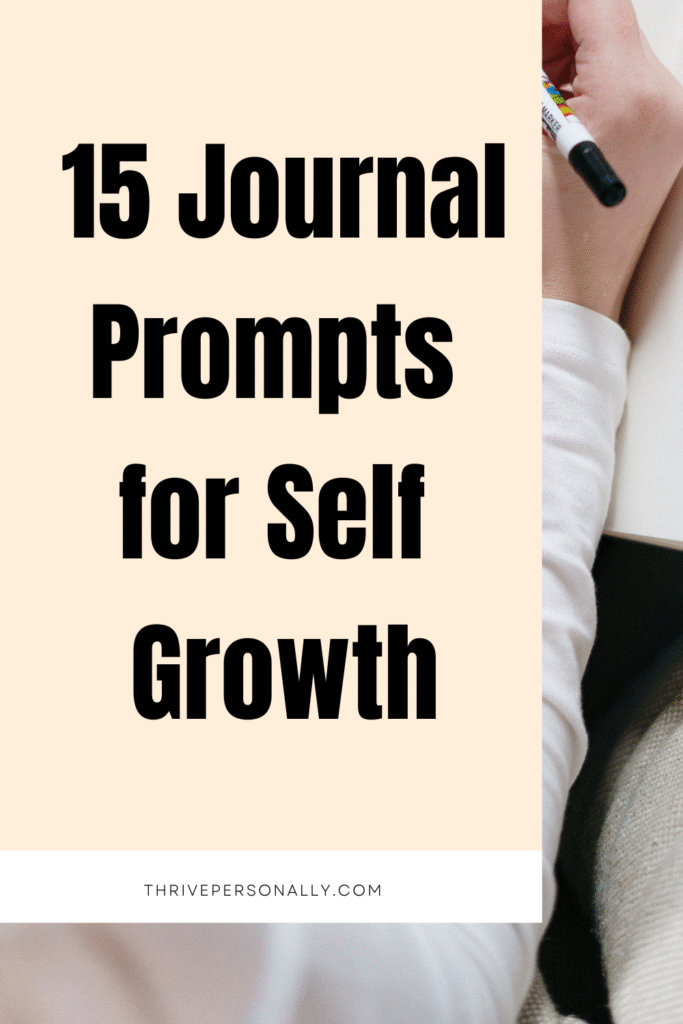The time I began to write was on a quiet evening when I did not know how else to handle a heavy, messy feeling inside me. I opened a small notebook and started writing. It was not about creating a story. At best, I was only trying to be truthful with myself.
A couple of nights later, I felt lighter. Weeks later, I began noticing things I used to miss. Journaling didn’t solve every problem, but it helped me understand my thoughts and make better decisions. I jotted and jotted—and each time, I learned more about myself and what I wanted.
With this post, I’m offering you 15 explicit journal prompts for self-growth
Why Journaling Works
Writing moves your thoughts out of your head and onto the page. Once written down, they no longer have the same power over you.
People who write about emotions or difficult experiences are often less stressed and think more clearly. Research shows that expressive writing is linked to reduced stress and improved well-being over time (PMC, Harvard Health).
Journaling isn’t just recording daily events. It’s about asking questions, noticing patterns, and reflecting—all of which lead to better decisions.
How to Journal Effectively
1. Write Little but Often
Small, daily notes are better than occasional long sessions. Even brief periods of focused writing help reduce stress (Harvard Health).
2. Pick a Prompt
Select the one that feels urgent or resonates with you. Write for 10–20 minutes, or until you fill a page.
3. Minimize Distractions
Turn off your phone, close tabs, and find a quiet spot. If you’re not alone, use shorthand or short sentences.
4. Write Honestly, Not Perfectly
Don’t edit. Don’t worry about style. One line of truth is more powerful than a polished page.
5. Reflect Afterwards
Read slowly what you wrote. Ask: What do I want to do as a result of this? The step can be small—send one message, try one new habit, or simply carry one thought with you.
A Safety Note
Sometimes writing brings up anger, trauma, or pain. When that happens:
Pause and breathe (try three slow breaths).
If overwhelmed, talk with a friend, family member, or mental health professional.
Remember: journaling helps, but it’s not a substitute for professional care when needed.
15 Journal Prompts for Self-Growth
What in your life would you like to see more of, and why is it important?
What is something you think you’d never attempt—and why? Name one small step toward it.
What would you tell your younger self to help them?
Read also: 35 Morning Mindfulness Journal PromptsWhat’s one thing you’ve done in the past month you’re proud of?
What three values matter most to you? Where do you honor them—or ignore them?
Imagine the end of this year. What does a good day in your future look like?
What habit or pattern holds you back, and what small change could help?
Which relationships energize you, and which drain you? How can you protect your energy?
What are you telling yourself this week about success or failure—and is it true?
How do you define success now, compared to five years ago?
What three things can you say no to this month so you can say yes to what matters?
What would your dream morning look like? What two things would you do first—and why?
What belief would you like to test or change? How can you experiment with it in two weeks?
Write an idea without criticizing it. Just let it exist.
What small pleasure or habit can you add to boost your mental strength this week?
Read also: 45 Confidence-Building Journaling Prompts
Monthly Reflections
At the end of each month:
Ask: What have I learned this month?
Summarize one entry into a short paragraph.
Notice patterns: mood ratings, repeated thoughts, or progress toward goals.
Tiny adjustments add up. Growth is not smooth, but journaling keeps you aware of what matters.
Closing
You don’t need a big plan. Just pick a prompt, write honestly for ten minutes, and see what one small action follows.
Even baby steps build into real change. Writing helped me understand myself better. It may help you, too.
Save the pin for later



